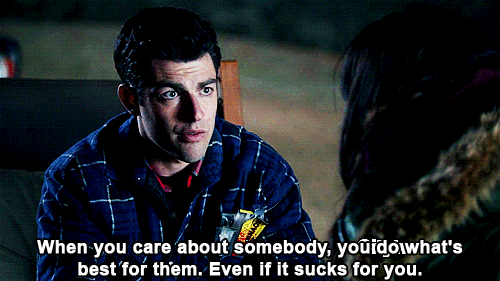Struggling with commitment in a relationship? Discover why commitment can be tough and get tips on building stronger, lasting connections.
Is it too much to ask for love and a fulfilling career? How is anyone supposed to juggle long-term goals with the desire to build a meaningful relationship without completely losing their mind, their sense of self?
We’ve seen the fear of commitment portrayed on screen for decades. You can see it in full display on classic films like Annie Hall and The Seven Year Itch to contemporary shows like Fleabag and How I Met Your Mother. Characters repeatedly avoid commitment or sabotage their relationships, often because they’re scaredᅳof vulnerability, of settling down, or simply of giving up their independence. Is commitment just too much to ask for, or are we dealing with deeper, more complex forces?
Why Do You Sacrifice Relationships For the Sake of Your Career?
But if you’re only nurturing your career and ignoring your personal life, you’re missing out on a whole spectrum of human experience. Relationships require time and emotional investments. So, how do you find balance?
These days work often takes the top spot in our to-do list. Staying late at the office to finish a report can mean missing quality time with your partner in exchange for a slight edge in your career or a bit more job security. This imbalance can sabotage commitment in a relationship.
Marc Randolph, co-founder of Netflix, has a great approach to balancing work and personal life. He takes one day each week to completely disconnect from workᅳno emails, no meetingsᅳjust time for himself and his family. For 30 years, this simple ritual has helped him stay focused on both his business and personal growth.
We need to step away from work to make space for personal growth and relationships. Consider taking a pause to recharge and focus on making time for yourself and your relationships.
Is Fear of Losing Independence a Major Factor in Relationship Struggles?
Independence. We’re all told it’s something to hold on to. In today’s world, where everything moves fast and we’re all about doing our own thing, the idea of commitment in a relationship can feel like it’s getting in the way of that freedom.
Think about characters like Maggie Carpenter in Runaway Bride or Amy in Trainwreck. Maggie bolts from commitment, leaving fiancés at the altar, while Amy keeps her distance because commitment feels like a threat to her independence. Sure, these are extreme cases. But if we’re honest, they’re not that far off from how many of us feel at times.
We fear that being in a commited relationship means losing our autonomy and identity. Many of us worry that it will lead to dependency or a stifling routine. This idea of needing to “stay free” makes commitment in a relationship seem stifling. But the reality is that freedom isn’t always as liberating as it seems. Emotional connections and being in a supportive relationship don’t require losing yourself. They can be your source of strength and support. Two independent people can build a life together while still allowing each other to grow.
How Do Social Expectations Affect Your Willingness to Commit in a Relationship?
Social pressure around commitment in a relationship has transformed over the years. What was once an obvious pathᅳgetting married, having kids, staying together until death do us partᅳhas become more fluid. These days nontraditional relationships and alternative lifestyles reshape what “commitment” means.
Take characters like Ally McBeal or Schmidt from New Girl. They both struggle with commitment in different ways. Ally’s emotional turmoil and Schmidt’s slow maturity highlight how modern expectations and shifting gender roles make long-term commitment complicated. Women are no longer confined to the role of caretakers. We’re free to be ambitious and assertive. Men, on the other hand, no longer need to avoid vulnerability and emotional openness. These changes may empower us but they also blur the lines of what a committed relationship looks like.

Schmidt convinces himself Cece’s way out of his league and their relationship is doomed. Instead of owning up to his fears, he pulls a “noble” move, claiming he’s letting her go for her own good. He even says, “I’m White Fanging you!”—as in, setting her free like in the book—because he thinks he’s holding her back.
But Cece’s not buying it. She’s all in and doesn’t want to be “set free.” The truth? Schmidt’s just projecting his own insecurities and fear of commitment, dressing it up as concern for her.
The White Fang line is classic Schmidt—funny but revealing. It perfectly captures his habit of sabotaging relationships, showing both how much he cares for Cece and how scared he is to face his own vulnerability.
In many ways, modern relationships require constant renegotiation of roles. What once seemed like a natural progression ᅳ dating, moving in together, marriage, kids ᅳ now feels more like a smorgasbord of options. With all the pressure to find “the one,” it’s no wonder that many people feel hesitant to jump into long-term commitments. But changing gender roles gives us a chance to create more equal, balanced, and, yes, real partnerships.
Can Technology and Social Media Contribute to a Lack of Commitment?
If you’ve ever been sucked into a scrolling session on Instagram, you know exactly how easy it is to get distracted by the digital world. Technology, with its instant gratification and constant stream of new options, has been both a blessing and a curse when it comes to commitment. Dating apps, social media, and constant connectivity all provide us with a buffet of possibilities, which sounds like a dream at first—but in reality, it can lead to commitment paralysis. Every new swipe left or right presents an alternate version of a partner, which makes us question whether we’re settling for the wrong person.
If you’re guilty of scrolling through options while on a date or having the nagging feeling that your perfect match might be one swipe away, you’re not alone. But “FOMO” can lead to a lack of satisfaction in committed relationships—if you’re constantly searching for something better, nothing will ever feel “good enough.”
Why Would You Rather Ghost than Commit?
Many of us who have commitment issues have a fear so deep that it could win an Olympic medal: vulnerability. Someone seeing the real you, flaws, mistakes, that time you cried during a rom-com, seems scary. And the idea of them still sticking around after all seems too good to be true.
We would rather ghost people than face the scary idea of actually connecting. Some of us are like emotional escape artists, coming up with all sorts of clever tricks to keep everyone at arm’s length. But our fear of getting burned stops us from getting what we really want: true intimacy.
Takeaway Message
Commitment does not mean sacrificing everything for your relationship. It means carving time with your partner while pursuing your own goals. It takes a great deal of vulnerability, balance, and growth ᅳ both as separate individuals and as a team. It’s messy and it’s imperfect. But when you do it right, it’s worth it.
Ready to stop running from commitment? It might be time to create a perfect morning routine that helps you embrace vulnerability and connection. Start your day with intention and build the foundation for meaningful relationships.
